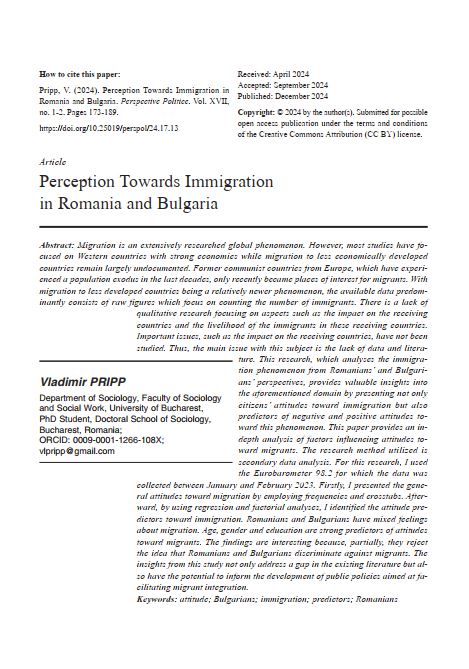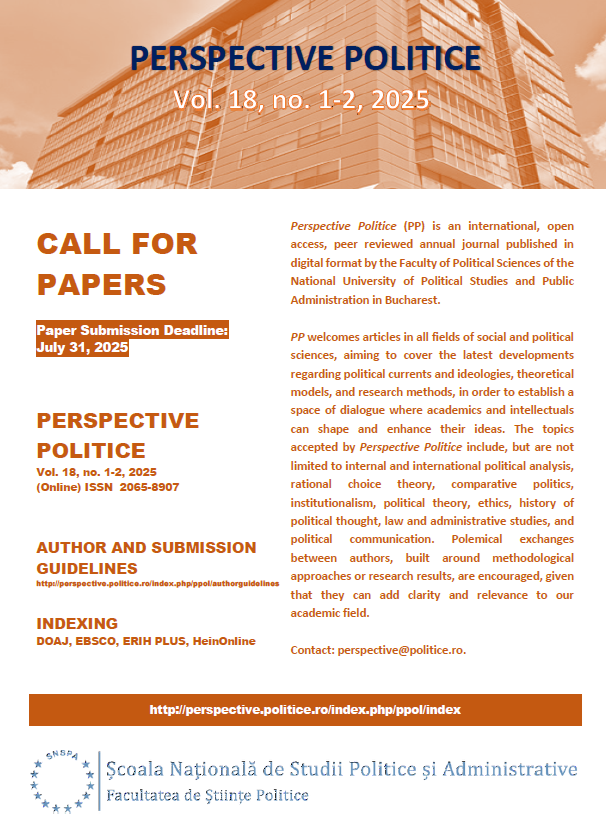Perception Towards Immigration in Romania and Bulgaria
Abstract
Migration is an extensively researched global phenomenon. However, most studies have focused on Western countries with strong economies while migration to less economically developed countries remain largely undocumented. Former communist countries from Europe, which have experienced a population exodus in the last decades, only recently became places of interest for migrants. With migration to less developed countries being a relatively newer phenomenon, the available data predominantly consists of raw figures which focus on counting the number of immigrants. There is a lack of qualitative research focusing on aspects such as the impact on the receiving countries and the livelihood of the immigrants in these receiving countries. Important issues, such as the impact on the receiving countries, have not been studied. Thus, the main issue with this subject is the lack of data and literature. This research, which analyses the immigration phenomenon from Romanians’ and Bulgarians’ perspectives, provides valuable insights into the aforementioned domain by presenting not only citizens’ attitudes toward immigration but also predictors of negative and positive attitudes toward this phenomenon. This paper provides an indepth analysis of factors influencing attitudes toward migrants. The research method utilized is secondary data analysis. For this research, I used the Eurobarometer 98.2 for which the data was collected between January and February 2023. Firstly, I presented the general attitudes toward migration by employing frequencies and crosstabs. Afterward, by using regression and factorial analyses, I identified the attitude predictors toward immigration. Romanians and Bulgarians have mixed feelings about migration. Age, gender and education are strong predictors of attitudes toward migrants. The findings are interesting because, partially, they reject the idea that Romanians and Bulgarians discriminate against migrants. The insights from this study not only address a gap in the existing literature but also have the potential to inform the development of public policies aimed at facilitating migrant integration.

Downloads
Published
Issue
Section
License
Copyright (c) 2024 Vladimir PRIPP

This work is licensed under a Creative Commons Attribution-NonCommercial-ShareAlike 4.0 International License.



